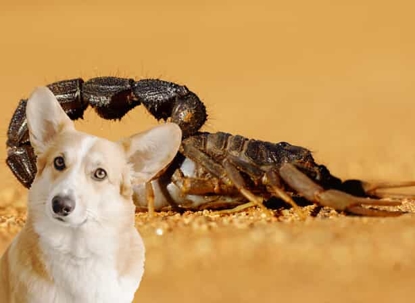Scorpions are not only a common pest in Austin, but they can also pose a threat to our beloved pets. As pet owners, it's crucial to take proactive measures to ensure the safety and well-being of our furry friends.
In this blog post, we will discuss practical tips to protect your pets from scorpions and highlight the valuable services offered by A-Tex Pest Management in Austin, TX.
Understanding the Scorpion Threat in Austin
In Austin, several types of scorpions can be found, including the most common species, the striped bark scorpion. These scorpions are known for their venomous nature and can deliver painful stings when provoked or threatened. It's important to be aware of the potential dangers scorpions pose to pets:
Allergic Reactions:
- Some pets may have allergies to scorpion venom, which can result in severe reactions.
- Allergic symptoms may include swelling, difficulty breathing, excessive drooling, or even anaphylaxis.
Painful Stings:
- Scorpion stings can cause intense pain and discomfort for pets.
- Stings may lead to localized swelling, redness, and tenderness at the site of the sting.
Risk to Small Pets:
- Smaller pets, such as cats or small dogs, are particularly vulnerable to scorpion stings due to their size.
To protect your pets from scorpion encounters, it's crucial to take preventive measures, such as:
Indoor Precautions:
- Seal cracks and gaps in doors, windows, and walls to prevent scorpions from entering the house.
- Regularly inspect and shake out shoes, clothing, and bedding before use.
Outdoor Safety:
- Keep yards well-maintained and free of debris, which can attract scorpions.
- Remove piles of wood, rocks, and other potential hiding spots.
Protecting Pets Indoors
It's crucial to recognize common hiding places for scorpions inside the house to ensure your pets' safety.
Some key areas where scorpions may hide include:
Dark Corners:
- Scorpions are nocturnal creatures that prefer dark and undisturbed areas.
- Encourage pet owners to thoroughly inspect and clean dark corners, especially in basements, attics, and storage rooms.
Closets and Storage Spaces:
- Cluttered closets and storage spaces provide ample hiding spots for scorpions.
- Advise pet owners to declutter and organize these areas regularly to eliminate potential hiding spots.
Under Furniture:
- Scorpions may seek shelter under furniture pieces such as couches, beds, and cabinets.
- Encourage pet owners to regularly move and clean under furniture to disrupt potential hiding places.
To prevent scorpion infestations and protect pets, regular cleaning practices are essential:
Regular Vacuuming:
- Vacuuming helps remove debris, dust, and potential food sources that attract scorpions.
- Pay special attention to areas where pets spend time or where pet food is stored.
Clutter Control:
- Clutter provides hiding spots for scorpions, so encourage pet owners to keep their living spaces organized and free of unnecessary items.
Additionally, pet owners should avoid leaving pet food or water bowls outside overnight, as they can attract not only scorpions but other pests as well.
Recognizing Scorpion Stings and Seeking Veterinary Care
It's important for pet owners to be aware of the signs of scorpion stings in their pets, as prompt veterinary care is crucial in such situations.
If a pet is stung by a scorpion, they may exhibit the following signs:
Pain and Discomfort:
- Pets may show signs of pain, such as whimpering, vocalization, or excessive licking or biting at the sting site.
- Swelling and redness may also be observed in the affected area.
Restlessness and Agitation:
- Pets may become restless, pacing, or displaying signs of discomfort.
In the event of a scorpion sting, it is highly recommended to seek immediate veterinary care. Veterinarians are equipped to evaluate the severity of the sting and provide appropriate treatment to alleviate pain and reduce potential complications.
When encountering a scorpion on a pet, it's important to exercise caution when attempting to remove it:
- Safely Removing Scorpions:
- Use tweezers or gloves to carefully grasp and remove the scorpion from the pet's fur.
- Be mindful of not squeezing the scorpion, as it could result in additional venom release.
Remember, it's crucial to prioritize the safety and well-being of both the pet and the person handling them. Seeking professional veterinary care should always be the top priority when dealing with scorpion stings to ensure proper evaluation and treatment for the affected pet.
By following these practical tips, you can significantly reduce the risk of scorpion encounters and ensure the safety of your pets. However, if you find yourself facing a scorpion infestation or need professional assistance, A-Tex Pest Management is here to help. Our experienced team specializes in scorpion control and offers safe and effective solutions tailored to your needs.

